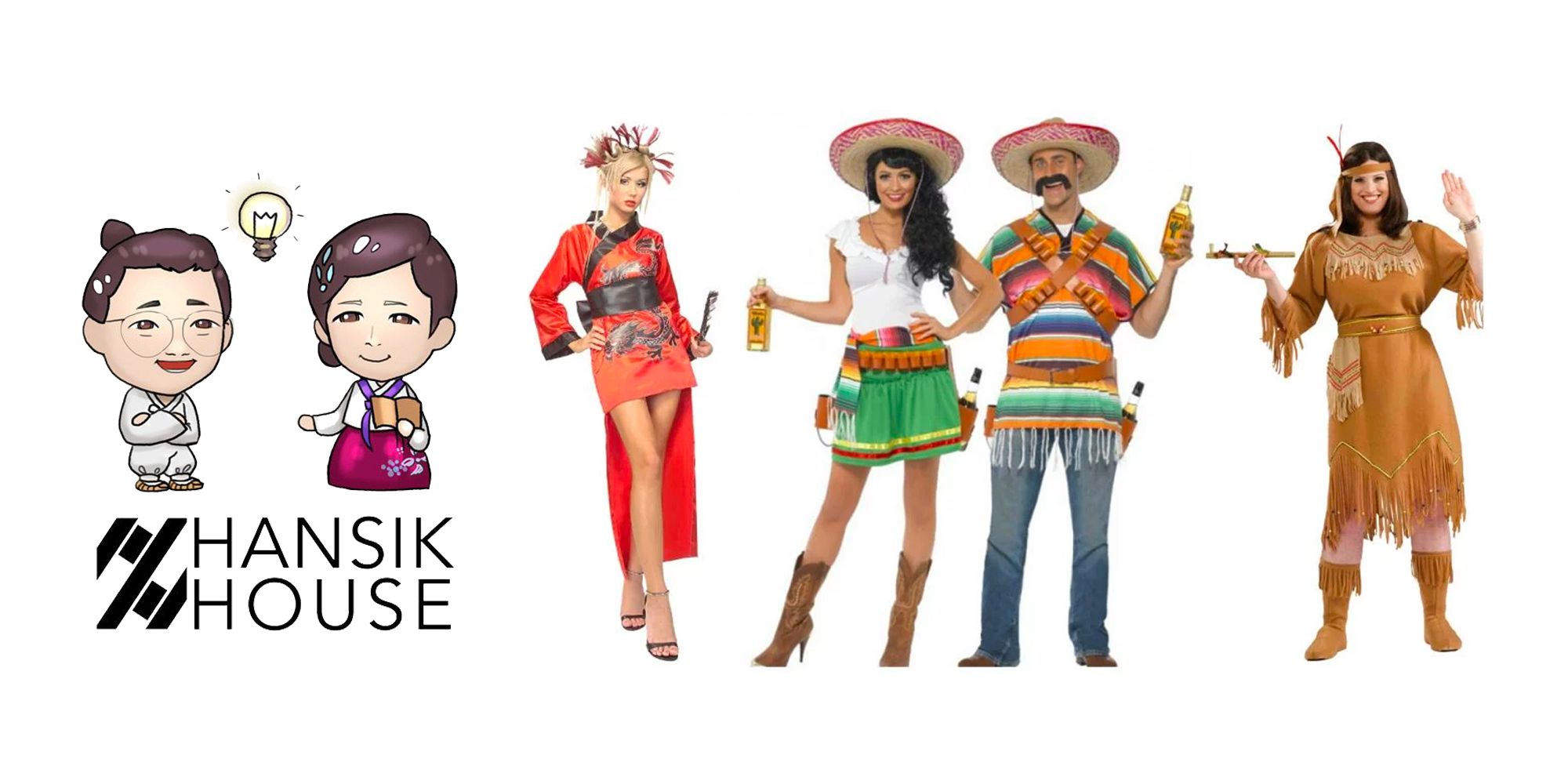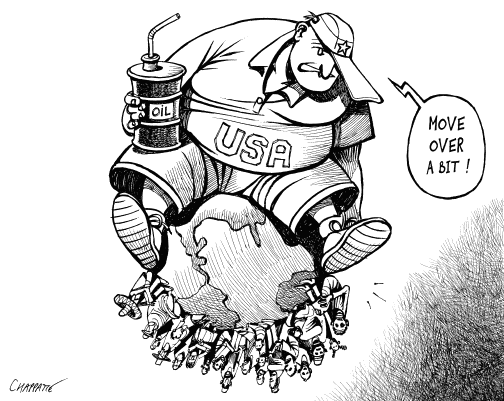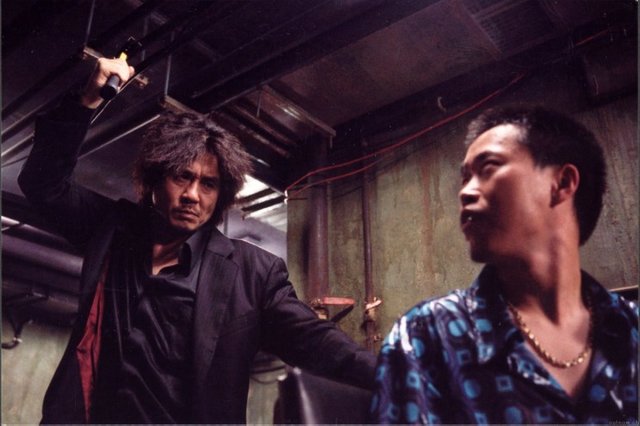Why Cultural Appropriation is Necessary

Quite Different than Typical Mainstream Titles, Eh?
A few weeks back, I gleaned a good amount of joy on this post looking at the climate of political correctness in America, especially as it pertains to the concept of “cultural appropriation.” Long post short, I believe it’s an artificial concept that does more harm than good. Culture has no solid state and culture has no ownership. It is the unique sum of language, food, daily ritual, belief, educational practice, and so many more, all more volatile than the next.
Today, in a more sober look, I make the case for why cultural appropriation should be celebrated more, should be encouraged, and should be seen as a necessary part of today’s global culture. This post will touch upon a couple aspects of cultural absorption and arrive at case much more close to home.
Cultural Hierarchy Does Exist
In a perfect world, every culture, every society, and every voice would be equal. We would have equal and balanced opportunity to bring forth the narratives that reflect us personally and have a more equitable, proportional representation of ourselves in the world.

We do not live in this world. There have always been and most likely always be “dominant narratives” that heavily influence how we perceive each other and one another’s cultures. The task thus becomes what we do in this situation and to be as informed of extant power dynamics so me start to bend it for our own purposes. It’s like when a smaller wrestler combats a larger one. Despite an inherent imbalance in power and size, the former can still leverage what is seen as disadvantages to put him/herself in a favorable position.
And so at this moment, the most adopted perspective is that any form of appropriation is “bad” or harmful. But there’s a very different side to the same coin that makes appropriation a very necessary practice in global culture.
Some Form of Experience
One key way to look at it is to consider what would have happened if a dominant force did not ‘appropriate’ a marginal one. The most clean-cut example is Disney’s main thrust - the storytelling of diverse individuals around the world. Is it inherently wrong for the Florida-based board to approve on a fantasy story about Moana or Merida? Or should this be celebrated as once unknown, once marginal stories are presented in the limelight?
These practices are of course not always done tastefully, not always faithfully. They are limited interpretations produced mostly for economic gain. Some are almost caricatures of the original material and can be seen as misleading. It is not lost on me that these moments of appropriation can foolish and even malicious.

But I believe these are all results of a principled approach to culture. And with any single event that could be seen as ‘offensive’ or ‘harmful’, there is an infinite amount of beneficial impact that enriches our daily cultural experiences.
Are We Complicit in ‘Whitewashing’?
The racial element in cultural production is an enormous point of contention. It seems that at least a few times each year, Hollywood is accused of “whitewashing” material - replacing narratives and characters supposedly reserved for a certain ethnic or racial identity with a ‘white’ one. This of course is a big no no for the anti-appropriators.
The most recent mainstream example was when it was announced that Ghost in a Shell, a classic Japanese anime movie starring a female cyborg, would be starring Scarlett Johansson. This was met with immediate and prolonged protest by major institutions and media figures of the production’s appropriation of an iconic Asian piece of creativity.
There are a number of reasons why this type of protest and moral outcry is off the mark (Hollywood is not a moral institution, the movie itself is an interpretive ‘remake’, etc.) but for the interest of today’s post, the biggest consideration is… does this do more explicit harm or good?
The most substantial attack on this as I’ve read is that this promotes the all-powerful consumption of marginal cultures by a dominant white one. The implication is that it will perpetuate a global hierarchy of white over yellow, black, brown, etc. While this very well may be true, there is absolutely no proof that this will happen with any instance of appropriation. And judging by the outcry, this message and reaction is fairly widespread and conscious, which undermines any potential inception of a power dynamic.

So let’s look at the benefits, which are much clearer and more objective. First, it gives the older original movie a much bigger stage for audience accessibility. The ’95 classic is a household name in anime but it’s still a cult classic in terms of viewership compared to a Hollywood production. Second, it provides a portal to the original and an entire world of a genre. Anime is treated similarly to cartoons in the US when in reality, the Japanese creative form is much more engrained in daily life in the country. Third, no matter the interpretation, it is nonetheless a formidable link between multiple cultures that did not exist before.
So, as you may guess by now, my main arguments that cultural appropriation does not exist and simultaneously how it is engrained and necessary in global practice both stem from the idea that this is an issue of perception. It is negative when perceived as negative, but it can be overwhelmingly empowering if seen in another light.
Let’s Take a Case
To end on a final anecdote to really hit this all on the head, let’s look at an example within my lifetime that is immediately recognizable to most and bridges the exacts two worlds I live between. Oldboy, quite possibly the most famous movie to come out of Korea, was originally made in 2003 and remade in Hollywood a decade later. Minsuk Choi’s original role was played by Josh Brolin and the film direction handed over from Chan Wook Park to Spike Lee.

First things first, the remake is sh*t. Independently it’s a bad movie and does a poor job muddying up the original plot with modern American references. The cultural roots that make the original Oldboy so compelling - it’s setting, it’s social atmosphere, it’s poetic language - are obviously absent in the remake. Like many remakes, it doesn’t live up to any expectations, no matter how low.
But is this remake a ‘bad’ thing?

Absolutely not. In fact, I welcome Hollywood to try again or even Bollywood to take a stab. The making of this in America did more good than harm for the original and now, the original Oldboy is an immediately recognizable film to a surprising amount of Americans. The making of cultural identity is a messy process with more tragedies than successes. But that warfare paves the way for real appreciated artifacts to emerge.
At any point, any Korean or Korea-American could have Tweeted out “CULTURAL APPROPRIATION!” and stirred up a massive attack. I suspect one reason why this didn’t happen was the reluctance to offend a ‘minority' director. And sure, they may have had some buzzing popularity around their offendedness. If anyone has seen the original, there is a great deal of sensitive material that few Koreans would want in open examination - culture that in the past was very dangerous and shameful. But now, just a few years later after the remake, this “appropriation” has allowed a fairly marginal culture to shine even more intensely on the world stage.
So, what now?
I don’t really care if you’re offended by any of this. I don’t care if you think PC Principal should beat me down with the PC shtick. My main concern and my main battle is to make sure no-one feels paralyzed in any attempt to formulate a new piece of culture. It is, by my estimation, one of the most enriching and important human practices that exist today. Whether you call it fusion, reinvention, or even appropriation in the most bloody, threatening, and ‘colonizing’ form, it is one of the most valuable practices in maintaining a free and creative society.
So that’s all from me today. Steem on Steemians.

진짜 너무 하셨어요
저 영어학원 다니라고
은근히 압력 넣으시는 거죠? ㅠ.ㅠ
ㅎㅎㅎㅎ 한글것도 쓰겠씁니다. ㅎㅎ
저 님 덕분에
이렇게 공개적으로 "정승화 무식하다"
티냈으니 이제부터 책임지셔요ㅎㅎ
고백하자면
무식한 종류가 꼭 영어 하나만은 아니예요 잘 하는 몇 가지 빼곤 다 못 해요.무식이 자랑은 아니지만요 ㅎㅎ
그래도
님 닉네임이 그러니까 말씀드리는
건데요 저 그래도 된장 고추장 맛간장은 직접 담가 먹어요 놀랍지요?
맞습니다... 문화의 다양성은 존중까지는 아니더라도 인정해 줘야 한다고 봅니다. 자기문화의 잣대만으로 다른 문화를 이리저리 보는건 아니라고 봅니다.... 좋은글 잘 읽고 갑니다...
고맙습니다!
Cultural appropriation is just a fictional concept created to limit people's opportunity to have fun, learn new things and create new content.
Learning from the good aspects of other cultures will always be an enrichment experience, no matter who you are, what culture are you from, or what culture are you learning from.
One of the best pleasures in life is to travel and to visit new places, which is to say, to learn from new cultures.
Everyone loves go to places like Egypt and their pyramids, or japan, or Rome and its ancient building, among much others places. When we go there, we learn from them and their history, increasing the wisdom we have of the world.
Cultural appropriation, is therefore, a destructive idea, with no good intentions behind them. Pizza for example, was created by Italians, does that mean a canadian cannot open his own pizza place and make pizzas with a personal twist? Nonsense.
Learning from other cultures is an easy way we all have to evolve as individuals. So, its a good thing and we should embrace it.
This was the beautiful ethic that was pervasive throughout my childhood, that culture is freely shared, freely expressed, and its reference should never be challenged in an absolute way.
Unfortunately, these extremist notions are being used as a blunt weapon against anyone the wielder wants to target for stepping on any supposed boundaries. I agree with you, fiction/ideology used inappropriately.
Our lives would be very narrow indeed if we did not absorb aspects from other cultures and add them to our own. Food is an extremely good example. Take away everything that came from the New World and we would not have potatoes (from Peru), tomatoes, peppers, chilies, aubergines, maize... Alexander the Great was responsible for introducing citrus fruits and peaches to the Mediterranean. Imagine Italian cuisine without tomatoes, a Greek courtyard without a lemon tree...
Amen. Food appropriation is a good one to showcase ;)
문화의 다양성에 대한 내용
모두는 이해 못했지만 잘 보고 갑니다^^